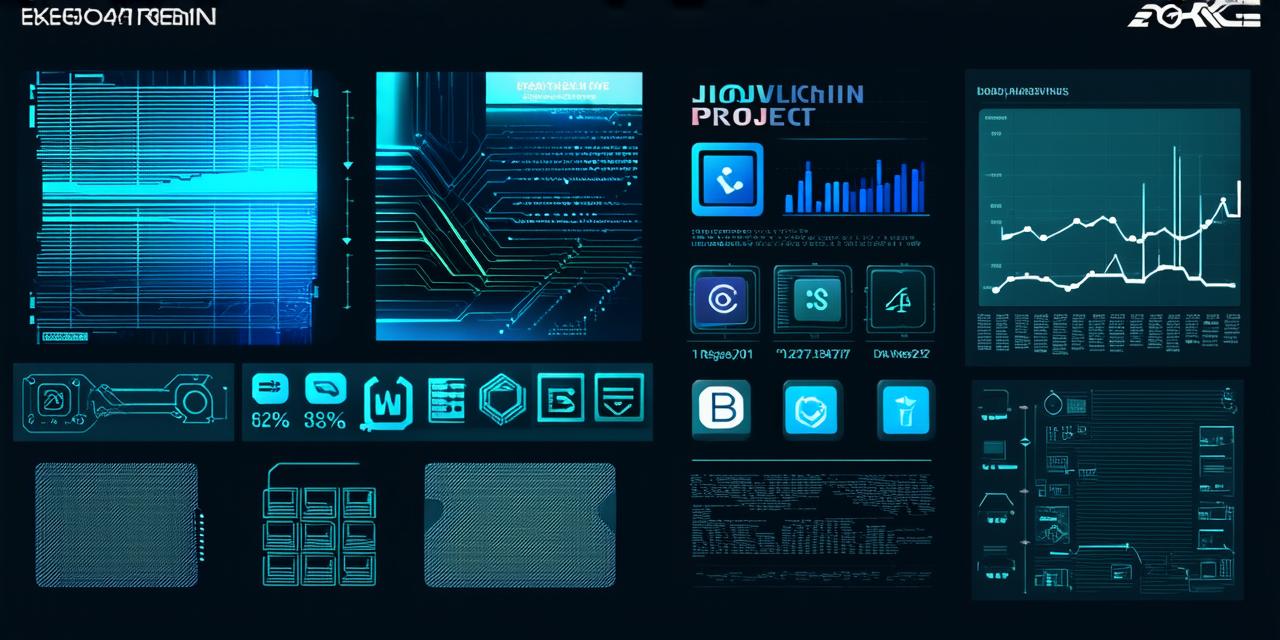Introduction
Blockchain technology has been gaining significant traction in recent years, with numerous industries adopting it to streamline their operations and enhance security. But what exactly is blockchain, and what purpose does it serve? In this comprehensive guide, we will explore the key concepts behind blockchain, its benefits, and how developers can leverage it to create innovative solutions.
What is Blockchain?
At its core, blockchain is a decentralized, distributed ledger that records transactions in a secure and transparent manner. It operates on a consensus mechanism, where multiple parties agree on the validity of a transaction before it is recorded in the ledger. The blockchain network is made up of interconnected nodes that maintain a copy of the ledger, ensuring that it is always available and tamper-proof.
The History of Blockchain
Blockchain technology was first introduced in 2008 with the creation of Bitcoin, a decentralized digital currency. Since then, blockchain has been applied to various use cases, including supply chain management, voting systems, and identity verification. The popularity of blockchain has grown exponentially, and it is now being used by numerous industries, from finance to healthcare.
The Purpose of Blockchain
Blockchain technology serves several purposes, including:
- Decentralization: Blockchain operates on a decentralized network, which means that there is no central authority controlling the system. This ensures that the network is resistant to tampering and hacking.
- Transparency: All transactions recorded in the blockchain are transparent and can be accessed by anyone on the network. This provides accountability and enhances trust between parties.
- Security: Blockchain uses cryptography to secure transactions and protect against fraud. It is nearly impossible to alter or delete data once it has been recorded in the blockchain, ensuring that it is tamper-proof.
- Efficiency: Blockchain eliminates the need for intermediaries, which speeds up transaction processing and reduces costs. It also provides real-time updates, which can be beneficial in industries such as finance and supply chain management.
Benefits of Blockchain Technology

Blockchain technology offers several benefits, including:
- Improved security: Blockchain’s use of cryptography and decentralization makes it nearly impossible to hack or alter data.
- Increased transparency: All transactions recorded in the blockchain are transparent and can be accessed by anyone on the network. This enhances accountability and provides a clear record of all activities.
- Reduced costs: Blockchain eliminates the need for intermediaries, which reduces transaction processing fees and other associated costs.
- Increased efficiency: Real-time updates and faster transaction processing can significantly improve the speed and accuracy of business operations.
Real-Life Examples of Blockchain Technology in Action
Blockchain technology has been applied to various industries, including finance, healthcare, and supply chain management. Here are some real-life examples:
- Bitcoin: The most well-known application of blockchain technology is Bitcoin, a decentralized digital currency that operates on the blockchain network.
- Smart Contracts: Blockchain technology can be used to create smart contracts, self-executing agreements with the terms of the agreement directly written into code. This eliminates the need for intermediaries and speeds up contract execution.
- Supply Chain Management: Blockchain can be used to track products from production to delivery, ensuring transparency and accountability in the supply chain. This can reduce fraud and improve product quality control.
- Voting Systems: Blockchain technology can be used to create secure and transparent voting systems that are resistant to tampering and hacking.
How Developers Can Leverage Blockchain Technology
Developers can leverage blockchain technology in several ways, including:
- Building Decentralized Applications (dApps): dApps are applications that operate on the blockchain network and do not require a central authority to function. Developers can build dApps for various use cases, such as supply chain management, identity verification, and voting systems.
- Creating Smart Contracts: Blockchain technology can be used to create smart contracts, which are self-executing agreements with the terms of the agreement directly written into code. Developers can use smart contracts to automate business processes and reduce costs.
- Building Decentralized Storage Systems: Blockchain can be used to create decentralized storage systems that are resistant to hacking and tampering. This can be beneficial in industries such as finance and healthcare, where sensitive data needs to be protected.
- Developing Cryptocurrencies: Blockchain technology can be used to create cryptocurrencies, which operate on the blockchain network and use cryptography to secure transactions.
Û
Û
Û
FAQs
Here are some frequently asked questions about blockchain technology:
Q: What is blockchain technology?
A: Blockchain technology is a decentralized, distributed ledger that records transactions in a secure and transparent manner.
Q: How does blockchain work?
A: Blockchain operates on a consensus mechanism, where multiple parties agree on the validity of a transaction before it is recorded in the ledger. The blockchain network is made up of interconnected nodes that maintain a copy of the ledger.
Q: What are the benefits of using blockchain technology?
A: Blockchain offers several benefits, including improved security, increased transparency, reduced costs, and increased efficiency.
Q: How can developers leverage blockchain technology?
A: Developers can leverage blockchain technology by building decentralized applications (dApps), creating smart contracts, building decentralized storage systems, and developing cryptocurrencies.
Conclusion
Blockchain technology has numerous applications across various industries. It offers several benefits, including improved security, increased transparency, reduced costs, and increased efficiency. Developers can leverage blockchain technology to create innovative solutions for their businesses and industries. As blockchain continues to evolve and mature, we can expect it to become an integral part of our daily lives in the coming years.



